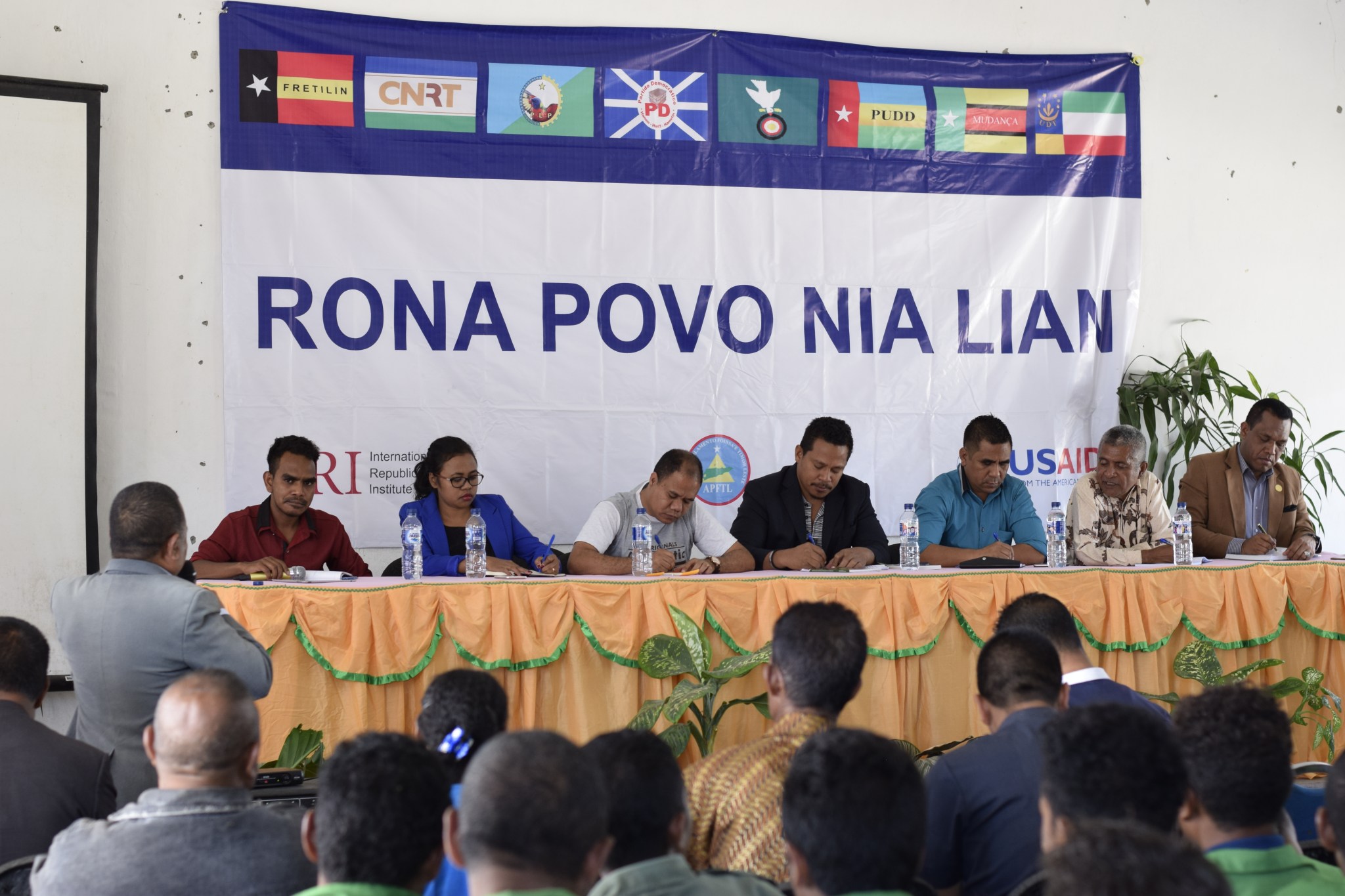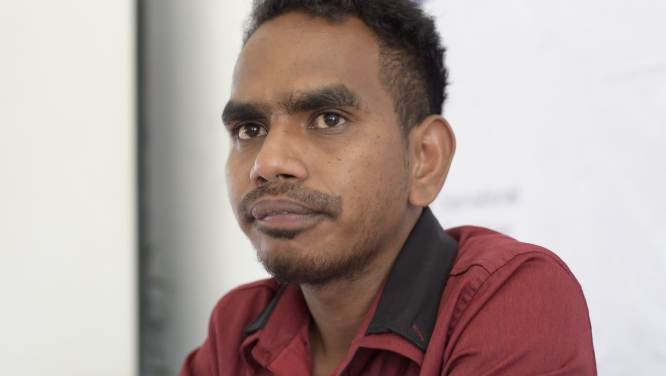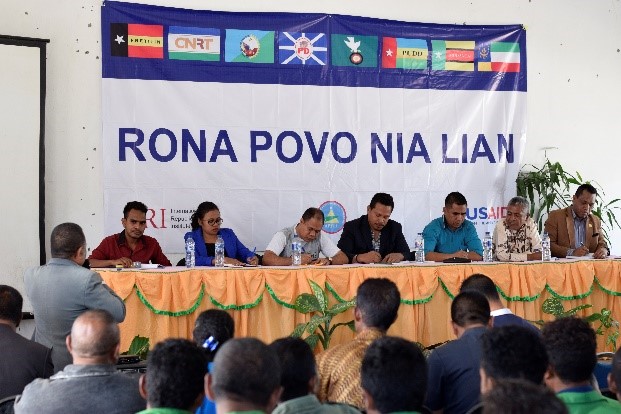
Disengaged and disaffected youth can have destabilizing effects on democracies and can provoke civil conflicts. As part of its youth approach, IRI helps young people assess barriers to participation and connects democratically minded leaders.
Uniting youth across political, regional and economic divides can help drive critical reform and advance the role young people play in decision-making processes.
With nearly 75 percent of its population below the age of 35, engaging youth in the political process is particularly important in Timor-Leste. To build the skills and experience of Timorese youth in inclusive governance practices, IRI has partnered with the Timor-Leste Youth Parliament Association Alumni Parlamentu Foinsa’e Nian Timor-Leste (APFTL) to help implement IRI’s town hall programming.
APFTL is a national association dedicated to promoting youth participation in national and local decision-making to address the various challenges facing youth, such as limited educational resources, limited employment opportunities and high levels of malnutrition.
With USAID support, IRI is organizing municipal-level town halls through its parliamentary processes and inclusive governance strengthening programming to facilitate engagement between Members of Parliament, civil society and constituents across all 13 municipalities within Timor-Leste. The town halls provide an opportunity for Members of Parliament, civil society members and constituents to discuss parties’ policy platforms and key issues affecting Timorese communities such as clean water, healthcare, coffee prices and education.
Over the next ten months, APFTL youth will serve as moderators, master of ceremonies (emcees) and report writers for each of the upcoming town halls. Through advocacy efforts within APFTL, youth have established a strong understanding of the role of MPs and parliamentary procedure, which puts them in a unique position to effectively moderate and report on the town halls.
On September 22, Samuel da Fatima da Cruz, an APFTL member, moderated the IRI-organized town hall in Ermera, Timor-Leste – his home municipality. As moderator, Samuel facilitated a productive discussion between over 150 Ermera constituents and eight of their elected representatives, keeping the event on topic and on time.

In an interview with IRI, Samuel stated, “I am grateful that today we are organizing Rona Povu nia Lian, or Listening to the People’s Voice, in Ermera Municipality at Gleno town hall. It’s an honor for me because our political leaders and parliamentarians come to meet directly with our people…I hope that today the community can express their feelings and problems that they are facing and that MPs follow through on their campaign promises to address constituent concerns.”
To prepare Samuel and his APFTL peers to carry out their town hall duties, IRI hosted a workshop in September that trained APFTL members on core principles of constituent engagement, how to moderate town hall meetings and how to write follow-up reports that highlight key issues raised at the town halls. So far, APFTL coordinators have successfully helped implement two of the 13 town halls – in Liquica and Ermera. Through training and firsthand experience of organizing and implementing these events, youth like Samuel will build important skills to carry out similar inclusive governance activities on their own in the future.
Politically involved youth are essential to inclusive governance. Young people are often more familiar with the social and economic barriers they face than elected officials and can communicate better with other youth throughout their communities. If young leaders are encouraged to understand and address the challenges facing their communities and most importantly their peers, they can help identify the right solutions and build stronger, more responsive governments.
With Timor-Leste’s high youth population, engagement of Timorese youth in the country’s political process will contribute to the long-term inclusive growth and self-reliance.

Top